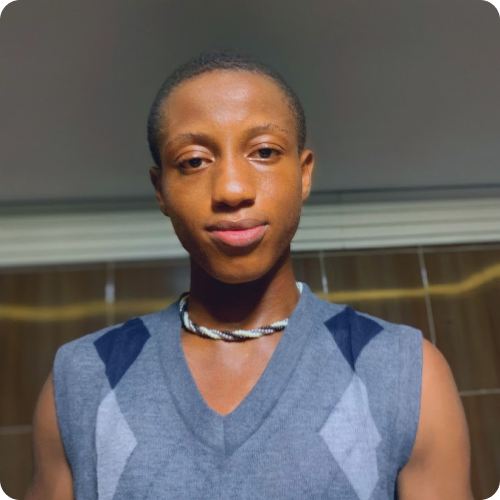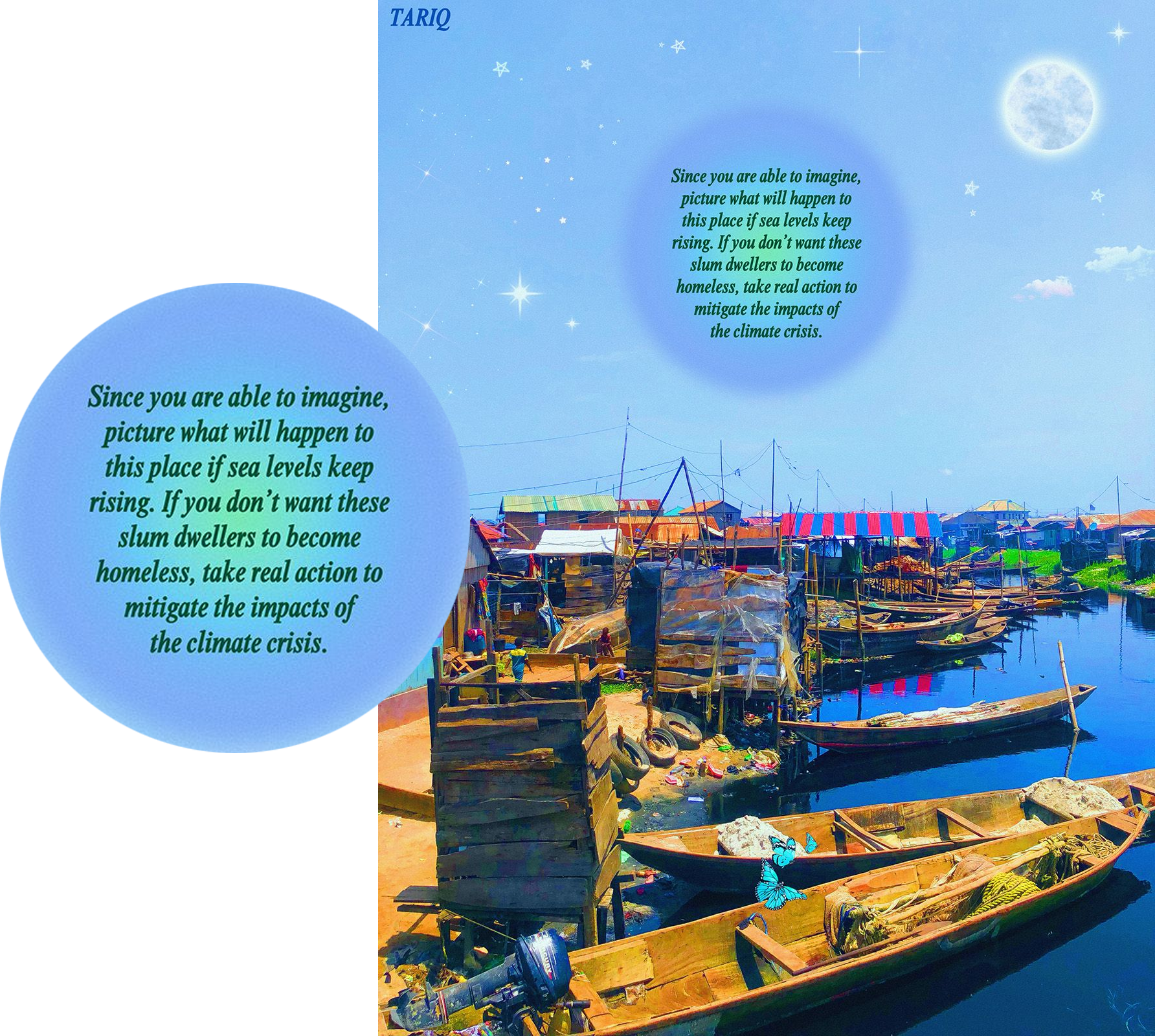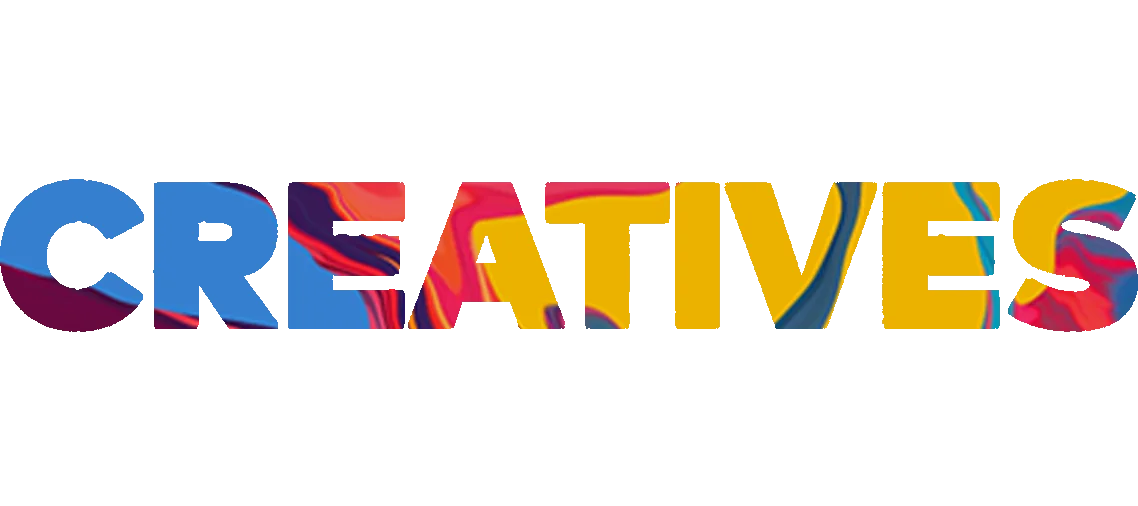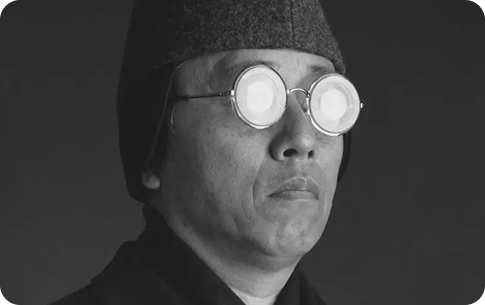
“
My art is basically my way of reimagining a better way to be in the world. It is what makes me feel like the world is not enough but it can be.”
- Tariq Lawal
Lagos-born 18-year-old writer, poet, artivist, and changemaker Tariq Lawal describes himself as “everything and nothing” due to his varying number of interests and passions. Raised by a single mother, Lawal said his creativity was unlocked by his upbringing.
“I spent most of my time daydreaming about different realities in my house,” he said. “Lagos Island is a very chaotic place, there is so much going on and I get lots of inspiration from living in an environment like this one. I do a lot of people-watching which is why I would like to become a sociologist some day.”
For Lawal art became a way for him to engage with and speak about the issues he cares about without being in the spotlight. He explained, “I used to be pretty shy even though I have always cared about social injustices. I felt like I wasn’t confident enough to go out in the streets to advocate for issues I care about dearly, so I started to use poetry and graphic design to express my desire for a more just, equitable, and fair world.
He continued: “I love being creative honestly, it is one of my biggest flexes. I am always able to come up with a very fun and creative way to bring awareness to issues I care about.” Lawal started writing poetry about social issues when he was 15, writing about gender inequality and misogyny in Nigeria, then later on he dealt with issues such as education, euphoria, pain, fear, mental health and more. Given the risks of being an activist in Nigeria, where civic space is considered to be repressed by the CIVICUS monitor, Lawal told us how he uses art as activism.
“Art is also the way I am the most comfortable expressing my discomfort with the status quo. Being an activist in Nigeria is not safe, there is literally no one to protect you. I have heard stories of Nigerian activists that got killed or attacked so I feel using art to disrupt the status quo is much safer and it saves me from terrible incidents that come with activism. In fact, I used to be uncomfortable with speaking out on issues I care about in person but as time went on, I started being more comfortable with using my voice both online and offline.”
Lawal has used his art to discuss gender inequality, racism, sexism, poverty, toxic masculinity, corruption, queerphobia, outdated education systems. For his spotlight as a Global Citizen Emerging Creative, he created a postmodern graphic artwork that spotlights climate change’s impact on his home, Lagos Island. “Art is an important tool for activism because it lets people empathize with other people and feel a sense of urgency regarding these issues,” he expressed.
For Lawal, creatives and artists that use their art as a tool for activism are needed. “We have so much power. Our creative work has the power to shake the world in its own way, to call out injustices in a gentle way, and lead to wider change. We need to keep doing our work because we are tackling injustice with every piece of work we create. I personally have to keep doing what I do because I want the world to change. I am not comfortable with the status quo, I want to live in a just and more equitable world already.”
MENTOR: David Tshabalala | Graphic designer and illustrator
TARIQ'S WORK


Global Citizen’s Emerging Creatives Program provides a platform for emerging creatives in the Global South that are highlighting the need for open civic space worldwide. Through their art, they call for change, shine a light on social injustices, and advocate for the advancement of the Global Goals.
MEET THE MENTOR
Rakaya Esime Fetuga
POET
South African-born Simphiwe Molefe, uses his photography to show the impacts of energy issues in the country. His collection of images titled, Impilo Iyaqhubeka, translates to mean “life goes on” in isiZulu and looks at how every day members of his community cope with South Africa’s ongoing power crisis.
In 2023, South Africa’s civic space rating was downgraded from “narrowed,” to “obstructed” — the third worst rating a country can have. That’s why Molefe believes creatives like himself have a role to play in highlighting the effects of the failure of basic services such as the power crisis in South Africa.
